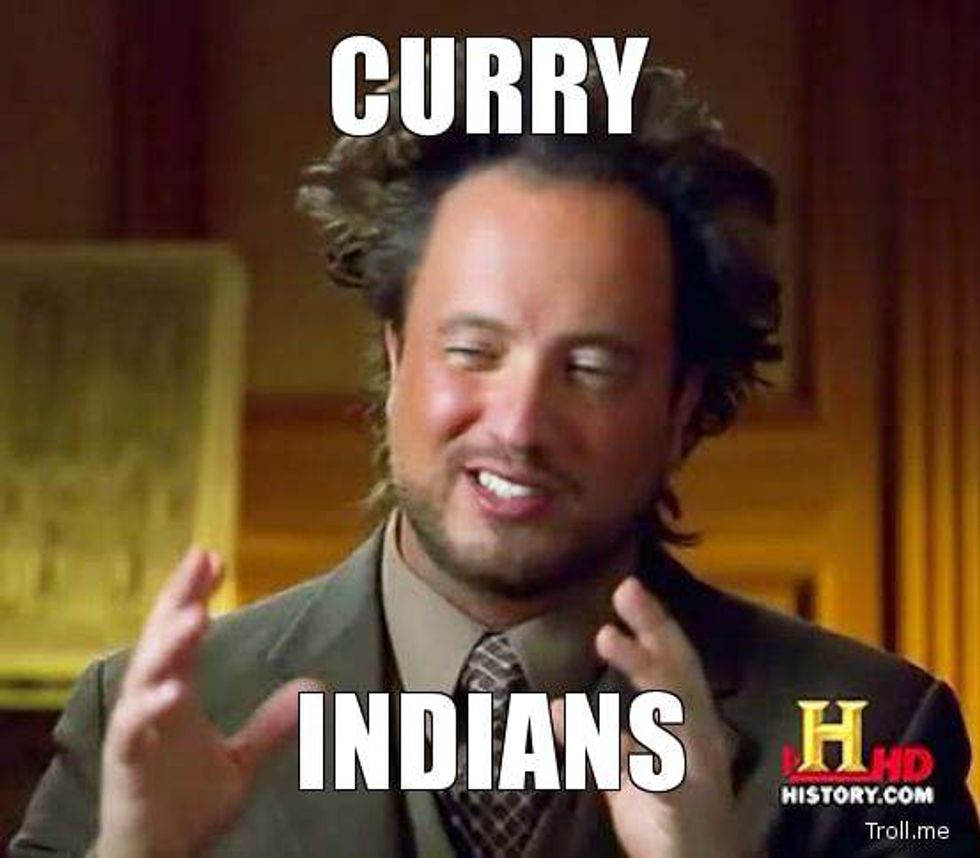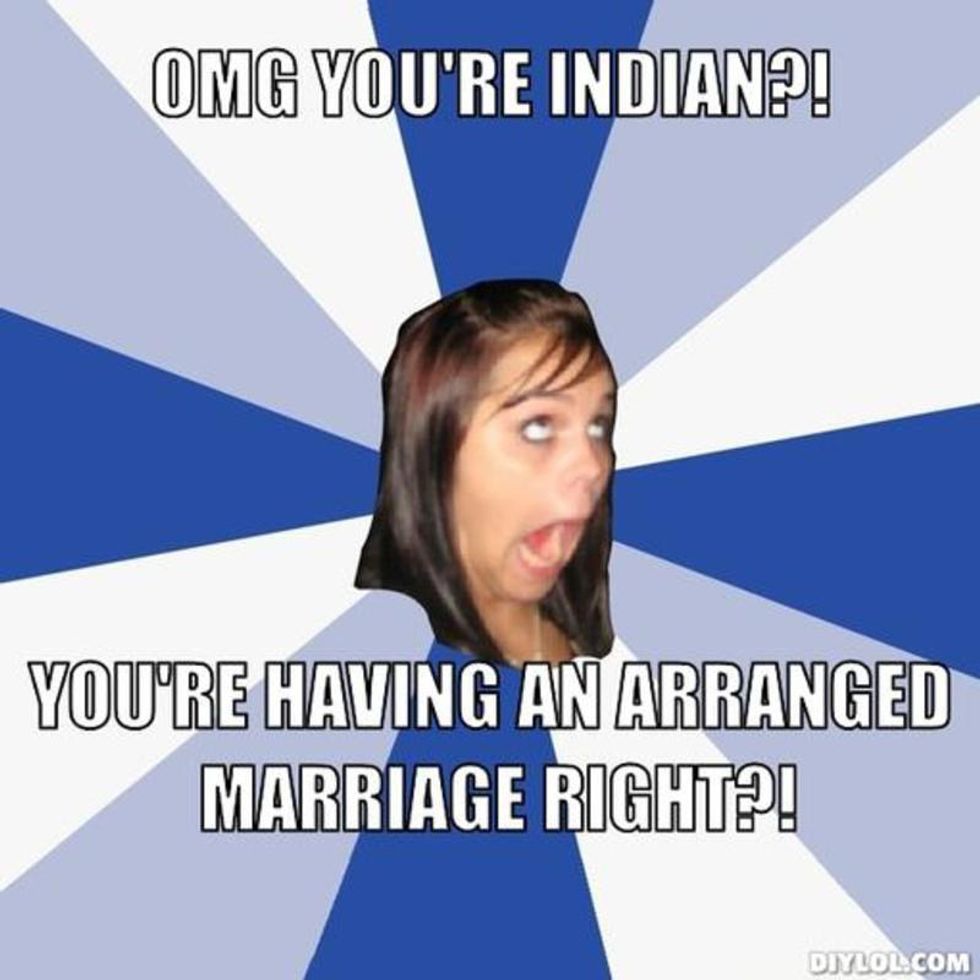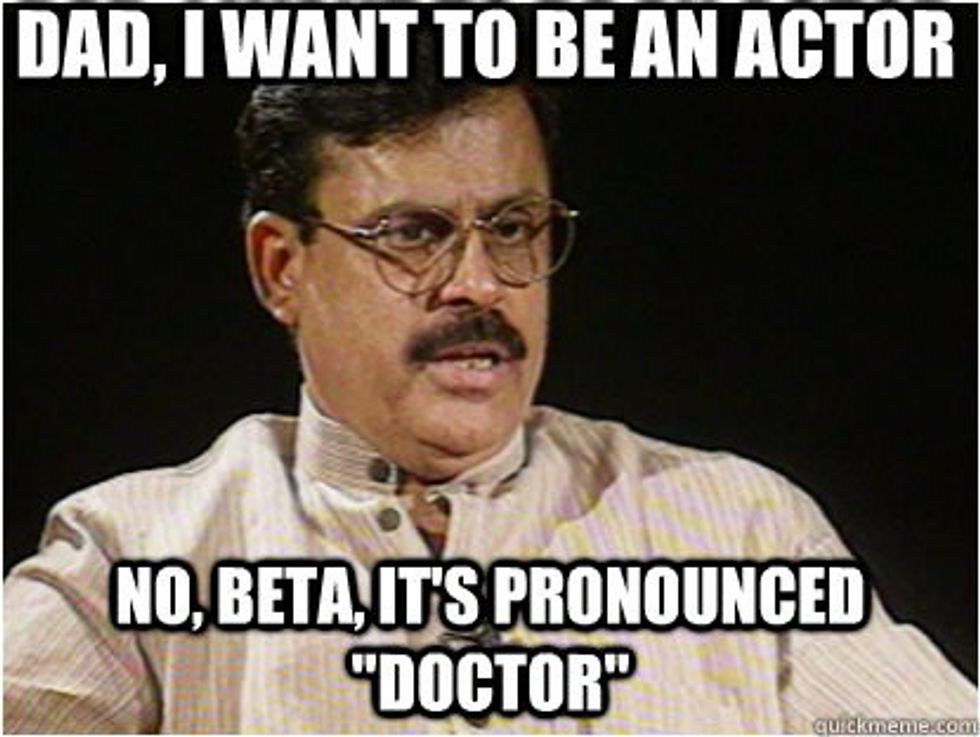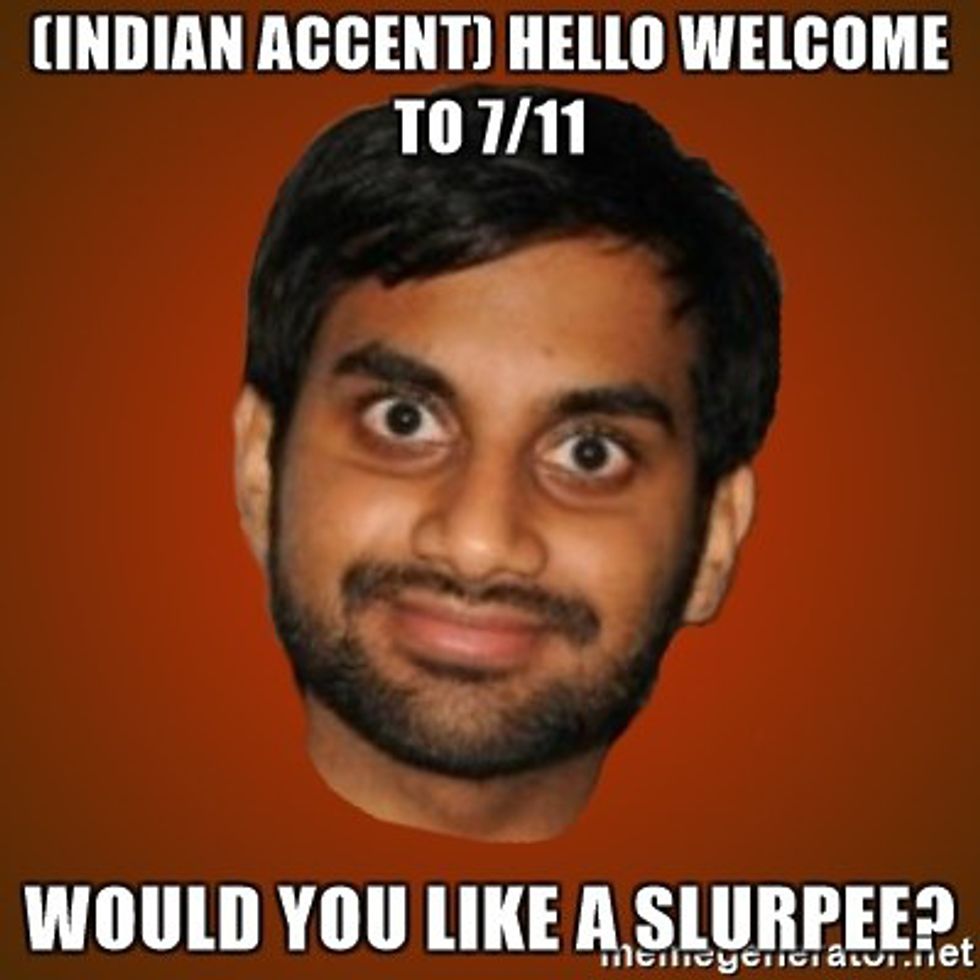As a first generation Indian-American who was born and raised in United States, I pride myself on being a part of a unique and diverse culture. The history, beliefs, and values stemming from my heritage had a pivotal role in shaping me into the person I am today. Never in my life have I ever felt ashamed or inferior to others because of the color of my skin, the religion I practice, or the accents of my family members when I am with them in public. In fact, I have only felt empowered from my rich heritage, and seeing other Indian people excel in a variety of fields, such as Aziz Ansari in acting , Gurpreet Sandhu Singh in soccer and Jasmeet Singh (aka Jus Reign) on Youtube and in music, makes me very proud.
The new comedy and Emmy-winning series, "Master of None" was released on Netflix on November 6, 2015 and stars Aziz Ansari. The show focuses on protagonist Dev Shah, an actor, looking to make a name for himself in the television and movie industries while juggling a complicated personal life, but is nothing short of drama and humor.
Believe it or not, I did not start watching "Master of None" until a month ago. It was not because I was hesitant to watch a show starring Aziz Ansari, one of my favorite celebrities, but more because I was otherwise engaged. Working an internship, being a college athlete, taking care of nagging injuries, being a full-time student and watching "Fuller House," "One Tree Hill," "Law & Order: Special Victims Unit," "Transformers Prime" and various Bollywood Movies, and consistently checking Tinder, can be very time consuming.
And then it hit me during the fourth episode of "Master of None," “Indians on TV.” Spoiler alert — the episode highlights the common stereotypes that are associated with Indians in today’s generation courtesy of our best friends, media and entertainment. From this series, I was able to think of my next topic: Indian stereotypes. From my 21 or so years of living, I have come up with a top five list (in any order) to address stereotypes commonly associated with being an Indian American in the United States.
So sit back, shut up and enjoy!
1. Curry
I cannot begin to tell you how many times I have been asked about curry. Questions could be about what it is, the spice level, or the laxative effects (asked more often than you would think). And the end result is always the same: me being put in an awkward scenario where I have to elaborate on one of the delicacies of Indian culture, all resulting in blank or befuddled stares in my direction. All I will say is this: "curry" is not the name of specific dish, rather it is a type of food. It's a generic term used to describe a variety of spices, meat, vegetables, and/or various ingredients compounded together. Yes, it can be spicy but comes in three levels: mild, medium, and hot. Yes, I adore curry based dishes such as Chole, Paneer Makhani or Malai Kofta. No, we Indians do not eat it or give off its aroma on a daily basis.
For your information, I'm a sucker for Italian food. The endless receipts for Penne Vodka I've recycled over the years would prove just that.
2. Gas Stations
If you have ever gone to a gas station where self-serve is prohibited in the United States, chances are you have probably had a person of Indian origin pumping fuel into your car. While this is a common occurrence, it does not mean that all Indians work at every single one of your local gas stations. In fact, most of the Indian people you come across at such establishments are immigrants who are simply trying to make a living in the land of hopes, dreams, and opportunity - after all they have to start somewhere! So unlike the meme of Aziz Ansari above, please do not "call me maybe" if I can pump your gas, okay?
3. Arranged Marriages
Now, this is a topic that really gets under my skin. Yes, arranged marriages are the norm in India, as 90 percent of husbands and wives are married through this method. However, times are changing and even though most Indian parents still prefer that their children, regardless of being born in India, the United Kingdom, the United States, or even Mars, are to be wedded through arranged marriages, it has become more socially acceptable for us to date other people in hopes of building a relationship out of genuine love, trust, and devotion. While the concept of outside dating is still laughable to the older generations of Indians, considering that arranged marriages have been a tradition in our culture, we millennials are slowly breaking away from the trend. In particular, my parents are perfectly fine with me dating other women (in or out of my culture, thanks for being so cool, Mom and Dad!), and aiming to build a relationship.
FYI to the ladies out there: I'm single and ready to mingle.
4. Pre-Med/Engineering Programs
For the entirety of my collegiate academic career, the notion that Indians always equal Pre-Med or Engineering students has been prevalent for as long as I can remember. This perception of us is common with all groups of people, including Indians. Whether I am a freshman or rising senior in college, people who do not know me that well or at all will take one look at me and think "Pre-Med" or "Engineering." The amount of times I have been asked, "Are you a pre-med major?" or, "Are you studying engineering?" has been unreal. It's as if I've been asked the two aforementioned questions more than being asked, "What's up?" or, "How are you?" Yes, most students of Indian origin in the United States do pursue degrees in biology, chemistry, physics, pre-med, or engineering. And I could not be more proud of members of my own family for pursuing and successfully completing such rigorous fields.
For Indian students in my generation to pursue it could be because their parents have jobs/degrees in those fields, however, could stem from a variety of reasons. It could be due to their parents holding jobs/degrees in those fields that they were forced to (believe me, it happens), or simply had a genuine desire in doing so. However, to say that all Indians study only science is simply erroneous. I, for one, major in Accounting and minor in history. Growing up, I've never been fond of any of the sciences as they simply did not appeal to me as accounting and business had. Other Indian people have gone on to run businesses, play professional sports, become teachers/professors, so on and so forth.
But for heaven's sake, ask me to help you with your chemistry homework and chances are that you will probably fail. Miserably, I might add.
5. Dunkin Donuts & 7 Eleven
When I said that engineering and pre-med only pop up in other people's heads when they take a look at me, I lied by omission. I forgot to add Dunkin Donuts and 7-Eleven. Hands down, this is my favorite stereotype to have come across in my lifetime. Not because of their donuts, even if they are scrumptious, but more because of the frequency of being associated with said stores. I have been asked multiple times, "Do your parents own a Dunkin Donuts/7 Eleven?" For the record, no, my parents do not own a store of said franchises. My mother is a librarian, and my father runs a computer consulting business, but I digress.
This past school year, one of my close friends at Rosemont gave me a Dunkin Donuts toy as a holiday present, and I could not help but find her gesture both meaningful and hilarious. On other instances, my teammates would barrage me with questions about 7-Eleven and their Slurpees, to which I have no answer to. Again, I just love this stereotype because it is the most common one of I've ran into. Also, it qualifies as great material whenever I do my stand-up comedy. Ultimately, there is nothing more effective at breaking the ice with a new group of people or my Tinder matches than saying, "My family doesn't own a Dunkin Donuts or 7-Eleven, but I do get discounts." Seriously, I get discounts. I get coupons in the mail from time to time.


























